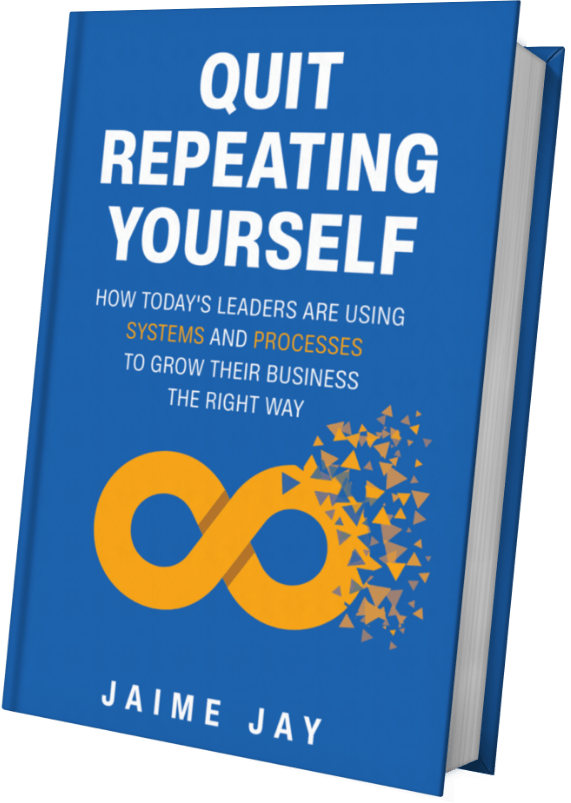How to Reduce Costs and Still Scale Your Business even in a Recession
When most people think of recession, they imagine the housing crisis of 2008 or the dot-com bubble in the late 90s—which resulted in multiple businesses, big or small, closing abruptly. Some were even at the peak of their growth, yet they still came crashing down in a short time.
But what went unnoticed were the companies that were founded and flourished in those challenging times. For example, Google and Amazon came out of the dot-com bubble. And plenty of companies, both in tech, and or a mix of both, came out during the biggest financial crisis in the late 2000s.
So why do some companies fail during a recession, while others seem to thrive in this situation? For us to understand it, let’s briefly discuss what happens when the recession hits.

D-Day: Recession
You are in the midst of a recession, or the warning signs are everywhere. Stocks are falling, prices of goods are going up, and investors are turtleing up and bracing for the financial winter. People are also trying to save money, so they buy only necessities and spend less and less on non-essential expenses.
Less Demand means more Recession
More consumers spending frugally means less money is circulating, resulting in an even bigger recession for businesses. Companies that cater products or services focused on non-essentials see little to no business and are often the ones to go first, lest they adapt and find new ways to generate income to stay afloat.
Companies Compete for the dwindling Demand
As companies are scared to have inventory or generate less income for the business and themselves, they start offering discounts and promos to entice more customers. They are forced to lower prices to stay “competitive”. Yet this sudden deflation of prices is devaluing the market at the same time, which further causes the market to crash.
Spending more and gaining less
In the end, you end up spending more just to retain customers and earning less due to the devalued market. Those who got caught in this would often find themselves cutting their losses and closing up shop, or laying off employees to save costs.
At the end of the day, most companies focus on survival and riding out the recession wave. But it doesn’t mean that one cannot do anything to stay competitive, or even break out from the pack during these times.
Staying Competitive during the Recession
That being said, here are some things that a company can do to stay competitive, or even break out during a recession.
Turning your business from a “Want” to a “Need”
As mentioned earlier, consumers are now prioritizing their “needs” and putting aside their “wants” until they are sure that their financial situation is stable again. So it makes sense that one should find a way to market their products or services into something that your customer “needs.”
How can one do that? One way is via Category Design. Simply put, you find a niche for your product that doesn’t have a market yet, and you dominate the space before others can jump into it. You do this by finding a problem or issue that your product can solve, and moving into that marketing category before anyone else.
A good example of this was Apple’s iPod. While there have been MP3 players and other music devices before it, Apple marketed it in such a way that it emphasizes its large capacity for music, something that wasn’t available back then. By highlighting a “want” and marketing it as a “need,” Apple cornered the market quite early, and it took a while before anyone else came close. By then, Apple and the iPod already had the lion’s share of the market.
Opening up your Consumer’s Wallets
Another way you can get ideas to scale up your business is to have an active communication line with your clients. Don’t just wait for feedback from them, actively ask them through email or other means of communication that you have set up.
How is this important for scaling your business? By gathering information about your products and services directly from your customers, you get a sense of their performance and how you can improve upon it. You get a fresh perspective and make your clients happy at the same time.
You could also find an issue that another product or service you have can solve, and market it to them, which can bring in more profits. This brings up the next one…
Direct Marketing to your customer’s other “Needs”
In line with the previous point, gathering information from your clients also shows you what other services they might be interested in that align with your current offerings or something you might be thinking of launching soon. As such, you can directly market to them rather than doing a blind marketing campaign that costs money but may not reach your intended audience. This process saves you money in marketing, as your intended audience are your clients, who are more likely to buy your products or services as they have prior knowledge of your business.
But how is that different from wrestling demands from others? Simply put, you target blindspots in your client’s consuming habits. Rather than competing for demand, you are introducing them to a new “Need.”. This is called “White Space Marketing,” where you use data to analyze a customer’s or client’s spending habits and find unmet needs that you can fill.
Hiring Smart during a Recession
One of the most common stopgaps that businesses do when a recession hits is freezing, if not reducing personnel to cut costs. While it might seem like a good idea to do so, in the end, this means that everyone, including you as a business owner, is taking on more responsibilities and tasks. It might be okay for short-term setups, but being stuck doing daily tasks and the odd job here and there means less time for you to figure out other things that can help your business during and after the recession.
Also, by freeze-hiring, you close yourself to the possibility of acquiring great talent that might have been let go due to other companies downsizing. So while you might be wary of hiring new talent during this time, do not close yourself to the possibility of it.
Hiring Remote
The pandemic has really opened up the floodgates for remote work as something that is not just an emergency measure but a permanent option for certain parts of the workforce. While most of the focus on the topic revolved around the convenience of remote work for employees, there are also benefits for employers and business owners.
One of the biggest benefits of remote work is that businesses can now source from a wider field of candidates. This means that you have a wider selection of talents at your disposal, at more competitive rates. You can even go as far as hiring people offshore, which, more often than not, charges only a fraction of the rates that are standard in most Western countries.
The 10 Percent Rule
On the topic of remote work, a lot of people have become accustomed to working from home. So much so that there is an observed increase in productivity among people who work from home, compared to the numbers of office-goers pre-pandemic. Not having to commute daily plays a huge part in this, as it means more time for themselves to achieve a proper life balance and less fatigue while working.
While most companies are pushing a return to office date as soon as possible, consider that work from home is here to stay and find ways to work with it to increase productivity while keeping team members happy and engaged in their work.
For now, a lot of companies are adopting a hybrid approach, where certain parts of the workforce are remote on certain days and come in 2 out of the 5 work days per week. Though it is a good start, there are still ways to finetune such systems, and even have certain employees go fully remote.
Bottleneck Founder and CEO, Jaime Jay, proposes the “10 Percent Rule,” where at least 10% of your employees are working remotely to increase productivity. Of course, you still have to figure out what kind of work around the business can function efficiently and effectively while remote, so you can let those employees do their thing and thrive, while still keeping elements of the business that need close supervision in the office.
Conclusion
There are still a lot of ideas and approaches that one can take to tackle the recession. While some might work more effectively than others, the important thing is to never give up, and keep finding ways to make your business into something everyone would want and need in the future.
Want to learn more about Distant Assistants, and what it takes to hire one? Visit bottleneck.online now to learn how you can have your very own Distant Assistant!
Subscribe to our newsletter so you can receive up-to-date information about other tips on how our distant assistants can help entrepreneurs grow their business. You also get FREE access to our Ultimate Distant Assistant Checklist when you sign up.
About Jaime Jay
Meet Jaime Jay – a man who wears many hats, and wears them all admirably. He's a master connector, an entrepreneur extraordinaire, and a published author who knows how to get things done.
Before he found his way to the business world, Jaime served his country as a brave paratrooper in the U.S. Army. But that's just the beginning of his many accomplishments.
He's the founder of the renowned Bottleneck Distant Assistant Services firm, and his book "Quit Repeating Yourself" has become a must-read for entrepreneurs everywhere.
When he's not busy building his empire, you can find him on his beloved Harley Davidson, cruising through the countryside and taking in the invigorating effects of Uitwaaien – a Dutch practice that involves facing the wind to boost health and relieve stress.
He enjoys spending his free time outside building stuff with his wife, Nikita the dog and their two kittens (for now at least) Tommy and Tater.
He is ‘over-the-moon’ happily married to his wonderful wife Sara, his amazing daughter, Jessica, who is serving our country as a United States Army soldier. Jaime and Sara are the proud grand parents of two beautiful little girls.

Get Your Book Now!
Quit Repeating Yourself provides guidance for entrepreneurs, business leaders, and managers to help prevent unknown challenges from ruining their business.


















